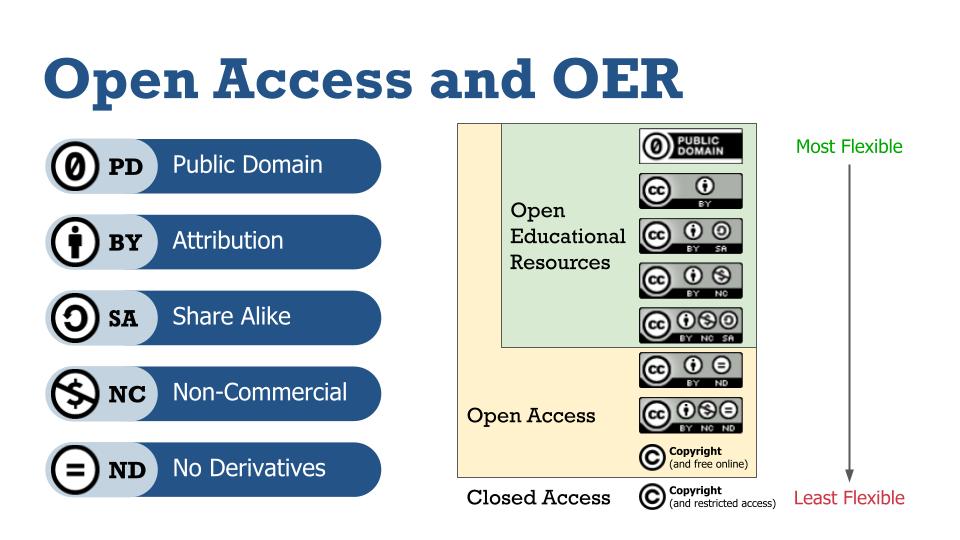Anything you create in tangible form, such as a drawing, blog post, article, poem, sheet of music, or set of lyrics, is automatically covered by United States copyright laws. This places limitations on what other people can do with your work. They must ask permission to use it in any form. The way you license or give others permission to use your work can greatly affect how many people it can reach and limit what they can do with it. So if you want to share a great lesson you made so other students can benefit, choosing a license is important.
Creative Commons has become the standard for open licenses. It allows all sorts of creators to apply permissions and license terms to their work–terms that are understandable and allow for flexible use and sharing. This also allows people to retain ownership of their creation while sharing it to a wider audience. A Creative Commons license has four possible elements, shown left in the image below. These are attribution, share alike, non-commercial, and no derivatives.

When those Creative Commons elements are combined, there are a total of seven possible licenses, as shown in the image above. The most common and most flexible of those are CC-BY (Attribution) and CC-BY-SA (Attribution Share-Alike). Resources that have a copyright but are available freely online fall under an "Open Access" designation. Anything with restricted access would be "Closed Access."
See these licenses in action in the video below:
If you ever spot one of these licenses or images, rest assured that you have permission to use it. You can even search for Creative Commons-licensed material on major search engines and image- and video-sharing sites. When it's time to share your own great lesson, activity, or resource, you’ll have a sense of what to select so more educators can find and use your work. In doing so, you’ll contribute to and help grow the educational community. As you'll see later, you can use the License Chooser from Creative Commons. There, you simply answer two questions to receive a recommended license, graphic, and text. You can post these on your materials so others know what rights you are extending.
For more about Creative Commons licenses and these elements, visit creativecommons.org. For more information on licensing and copyright for educators, see this Permission Guides for Educators.
Fetch is avaiable to INFOhio automated schools. If you are an INFOhio school, please log in with your school username/password using the button at the top-left corner of this page.
For more information about Fetch, please visit the Fetch information page or contact INFOhio support at https://support.infohio.org.